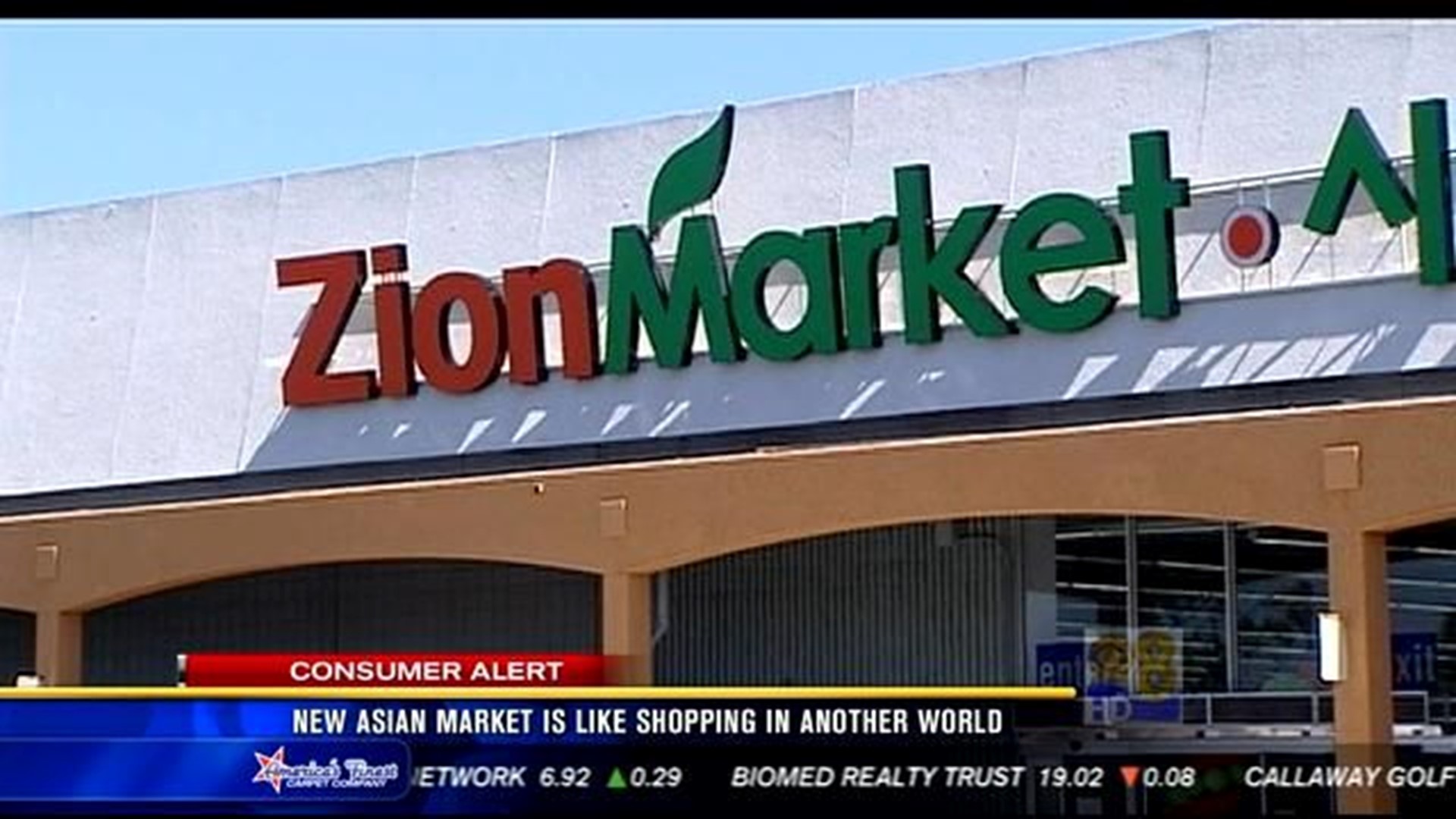Have you ever been confused by the phrases “in the market” and “on the market”? These seemingly interchangeable expressions can actually have distinct meanings in the real estate world. Understanding the nuances of these terms can make navigating the complex world of buying and selling property much easier.

Image: www.cbs8.com
This article aims to demystify these phrases, exploring their different implications and helping you understand how they are used in the real estate industry. We’ll delve into the historical context, practical applications, and modern trends associated with these terms.
“In the Market”: The Buyer’s Perspective
When someone says they are “in the market” for a house, they are expressing their intention to buy a property. It signifies that they are actively looking, researching, and exploring available options. This typically involves:
- Setting a budget: Determining how much they can realistically spend on a property.
- Identifying needs and preferences: Deciding on the type of property, size, location, and features desired.
- Researching neighborhoods and market trends: Understanding the local real estate climate and potential investment opportunities.
- Attending open houses and viewing properties: Exploring different options and comparing them against their criteria.
Being “in the market” represents the initial stage of the buying journey, a period marked by exploration, deliberation, and careful consideration.
“On the Market”: The Seller’s Declaration
On the other hand, a property “on the market” is a property that is actively being sold. This means the owner has made the decision to sell and has taken steps to list the property with a realtor or directly advertise it. It implies:
- The property is available for purchase: Potential buyers can make offers and begin the negotiation process.
- Public exposure: The property is listed on real estate platforms, websites, and potentially advertised offline, making it visible to a wider audience.
- A defined price point: The seller has determined an asking price for the property, establishing a benchmark for negotiations.
- Acceptance of offers: The seller is prepared to entertain offers and potentially enter into a sales contract.
The phrase “on the market” marks the beginning of the selling process, signaling that the property is ready to be purchased.
Navigating the Market: Insights for Buyers
Knowing the difference between “in the market” and “on the market” is crucial for buyers. It allows them to:
- Understand their role: When you are “in the market,” you are the one initiating the search and making decisions. You are the active party in the transaction.
- Identify opportunities: Observing properties “on the market” helps buyers assess available options, understand pricing trends, and determine the right time to make an offer.
- Prepare for negotiations: Being aware of the status of properties allows buyers to strategically position themselves for negotiations and potentially secure a better deal.
Remember, being “in the market” is a long-term commitment requiring patience, research, and careful decision-making. It’s a journey of exploration and discovery.

Image: voavietnam.net
“On the Market” Strategies for Sellers
Sellers also benefit from understanding the significance of the phrase “on the market”. It empowers them to:
- Maximize exposure: Listing a property “on the market” ensures it is visible to a broad audience, increasing the potential buyer pool.
- Attract qualified buyers: Clearly defining the property’s status allows sellers to filter out casual inquiries and connect with serious buyers.
- Utilize marketing tools effectively: “On the market” status permits sellers to leverage real estate platforms and marketing strategies to promote the property to potential buyers.
- Negotiate from a position of strength: The public declaration that the property is “on the market” allows sellers to receive and evaluate multiple offers, potentially leading to a more favorable deal.
Being “on the market” is a strategic decision, requiring clear goals, strategic planning, and an understanding of market conditions.
Trends and Innovations: Shaping the Future
The real estate landscape is constantly evolving, influenced by new technologies and changing consumer preferences. Several trends are influencing how buyers and sellers navigate the market:
- Virtual Reality and 3D Tours: These technologies offer an immersive experience, enabling buyers to explore properties remotely, simplifying the search process and reducing the need for physical viewings.
- Digital Platforms and Social Media: Real estate platforms and social media have become powerful tools for finding properties and reaching potential buyers. These platforms offer greater transparency, faster communication, and access to a larger audience.
- Data Analytics and Artificial Intelligence: Data analytics and AI are being used to predict market trends, identify potential buyers, and personalize the experience for both buyers and sellers.
These innovations are impacting how we define “in the market” and “on the market”, streamlining the process and enhancing the user experience.
In The Market Or On The Market
Conclusion: Navigating the Real Estate Maze
Understanding the difference between “in the market” and “on the market” can be a game-changer for buyers and sellers. It helps us navigate the complex world of real estate with clarity and confidence. As technology continues to shape the industry, being aware of these terms and their evolving meanings remains essential for achieving success in the market. We encourage you to explore further resources, connect with knowledgeable professionals, and make informed decisions throughout your real estate journey. Remember, the key is to be informed, prepared, and strategically aware of your position “in the market” or “on the market”.






